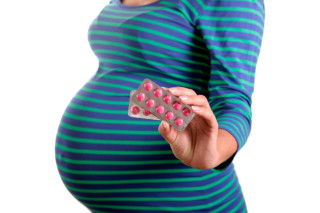 Medicines don’t make it to the market by accident. There’s a lengthy approval process, clinical trials, and extensive testing to ensure their benefits outweigh any potential risks. But what happens when it comes to supplements? Just because they don’t fall into what patients traditionally perceive as “medicines” does it mean that they’re safe for use during pregnancy?
Medicines don’t make it to the market by accident. There’s a lengthy approval process, clinical trials, and extensive testing to ensure their benefits outweigh any potential risks. But what happens when it comes to supplements? Just because they don’t fall into what patients traditionally perceive as “medicines” does it mean that they’re safe for use during pregnancy?
There are many types of vitamins, minerals, and other products on our pharmacy and supermarket shelves. And as many pregnant women become more conscious about their diet, and whether or not they’re getting everything that their baby needs, they often turn to supplements to fill in any (perceived or real) gaps in their diet. But as research shows, we don’t actually know all of the answers about which, when, and how many vitamins and minerals to take.
Vitamin D consumption is one example of this. In the UK, the National Institute for Health and Clinical Excellence (NICE) makes specific recommendations for vitamin D and folic acid supplements in pregnancy, but it acknowledges that it’s not always clear how much vitamin D is enough in all population groups. Indeed, other academics question whether or not vitamin D is required during pregnancy. That’s why NICE is investigating further, and the institute aims to publish its findings by mid-2014.
Other studies show that perhaps Vitamin D’s role in pregnancy is overstated – finding that a mother’s vitamin D levels has “no relevant association” to child’s bone-mineral content. And these findings reinforce the – worrying – view that there’s so much more that we really ought to know about vitamin and mineral supplementation during pregnancy. So the more research, the better.
